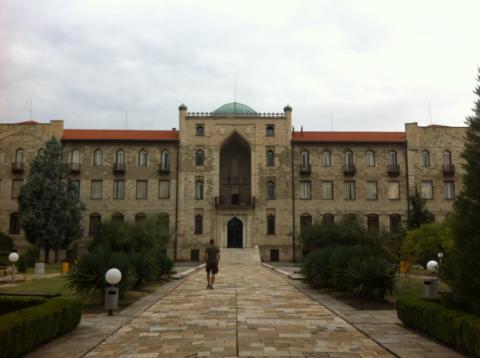
Cengiz Haksöz has a BA degree in Political Science and International Relations at Marmara University, Istanbul, and MS degree in Sociology at Middle East Technical University, Ankara, Turkey. He is a doctoral candidate in Anthropology, at the University of Pittsburgh. He is studying food, collective memory, and social identities. His dissertation research is on identification strategies of Pomak communities (Slavophone Muslims) in Bulgaria, Greece and Turkey.
Throughout the state-socialist regimes, dominant groups expressed and manifested their power and domination via various direct and/or indirect symbolization. Collective memory, in particular sites of collective memory or memoryscapes, was one of the many domains to manifest domination. However, the state has never had a capacity to fully control all spheres of collective memory construction. Dominated or minority groups could also develop alternative ways to resist and challenge dominant groups' politics of memorialization and politics of visibilities.
Dissolution of the Eastern Bloc has altered previous domination-subordination relationships, as well as transformed meanings of “socialist” and “nationalist” memoryscapes. However, I will argue that despite changes in their meanings, the overall understanding and politics of memorizations and politics of visibilities have remained. Based on the examples from Bulgaria, in this lecture, I will discuss continuity, discontinuity and ambiguity of politics of memorialization and politics of visibilities in post-socialist Bulgaria. I will examine how dominant (majority) and dominated (minority) groups respond, challenge and reshape meanings attached to memoryscapes. This paper is based on research conducted in the Summers of 2006, 2009 and 2010, and in the Fall of 2012 in Bulgaria.

